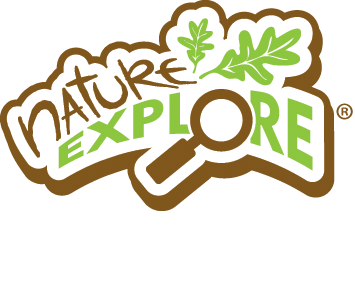Nature Transforming Teachers and Children
By Dexter Lane, Nature Explore Program Writer and Consultant
Josefina Navarro, Principal of the Fourth Street Early Childhood Center in East Los Angeles, California, and her wonderful staff, oversee an oasis of learning in an otherwise under-resourced neighborhood. Fourth Street’s Certified Nature Explore Classroom has been transformative for the children. Many have no place else outdoors in their neighborhoods that is safe for play. Yet this outdoor classroom has inspired another transformation; one that frees the children to explore rare levels of relationship and learning with both their peers and their teachers. This is the transformation of Josefina and her staff; and it holds crucial meaning for us all.
I got an inkling of this transformation while talking with Sylvia Diaz, an Early Education Assistant, and the outdoor classroom’s gardener. Going on twenty-two years working in the school district, she has been at Fourth Street since its opening two years ago. When asked about her previous twenty years in education, she said, “I have to forget about them. I’m relearning everything, because this is totally different.” She then spoke about tending the outdoor classroom with the children. She used words like “assisting” and “guiding” when talking about her relationship with the children. She didn’t use the word “teaching.”
Edith Figueroa, a Teacher for eighteen years, also joined Fourth Street at its opening. In talking about her previous experiences with playgrounds she said, “To me it was just like being a robot. I’m just standing there making sure they’re not getting hurt, guiding them to follow the rules. In this setting [Fourth Street] I’m doing more one on one with the children, sitting down and learning together about insects, about different plants. We’re discovering, I mean we are actually communicating more with children as far as the other program where I felt more like a robot just watching them.”
And yet more windows to this transformation opened when Josefina spoke of the children spontaneously engaging in empathic behavior with their peers. She said, “If a child falls and there is somebody next to them they’ll go and try to help them—and without teacher guidance… In traditional playgrounds, that’s a skill we try to develop with the children. Here, it’s become like second nature.”
Conflict is rare in their outdoor classroom. Josefina said, “One of the things we were reflecting on this week is that we don’t see conflicts outside… This is the second year that we’ve been open and I remember only one or two incidents, in two years.”
Josefina also spoke of one transition, away from using pre-planned curricular activities, to learning with the children. At one point, Josefina wanted her teachers to cover curricular material in the outdoor classroom through teacher-devised and directed activities. She said, “The teachers, they might have the three activities in the back of their minds but what I notice is once it goes outside it takes a totally different approach. They may be the best teachers ever, the perfect planners, but once it comes to the outdoors I see that the teachers follow the children’s lead. It might end up in a different activity than we planned, but that’s what I love. I want my children to feel safe and secure, and to know that they own the school, the outdoors and the indoors as well.”
Sylvia, Edith and Josefina have worked in schools with traditional playgrounds, where empathic behavior usually has to be taught, and where many staff would probably identify with Edith’s robot. Before the advent of their outdoor classroom they all had instincts and ways of relating to children on playgrounds that are appropriate for those environments. Yet by observing the children explore their curiosities in the Nature Explore Outdoor Classroom, Josefina and her staff have been treated to naturally occurring social behaviors on the children’s part that required them to rethink their roles as teachers.
At Nature Explore, we like to say that nature brings out children’s “best selves.” Josefina and the Fourth Street staff, many with years of experience teaching children how to be their “best selves,” now see, given the right environment, children already are their best selves. Josefina expressed this transformative understanding of children’s true natures. She said, “Here we give credit to the children. We value what they bring to the school, rather than in other programs where you think, ‘Today I’m going to work on empathy.’ ‘Today I’m going to work on behavior.’ Over here… we know they come with those skills. We just facilitate… We don’t direct what they should do. We don’t tell them what to do.”
This is the amazing transformation of Fourth Street’s staff. When children are freed by their environment to be their “best selves,” compassionate adults are also freed to be their “best selves.” To understand that children are naturally empathic and have natural social skills is to understand that these skills need recognition, reinforcement and scaffolding, rarely teaching. Sylvia is forgetting her pre-Fourth Street years. Edith has left the robot behind. Josefina wants her children “to feel safe and secure, and to know that they own the school…”
People choose early childhood education because they care deeply about children. Overall, the attrition rate of teachers in the US has been rising steadily for years. Perhaps one of the reasons for this condition is that teachers, while working, often can’t express that part of themselves that drew them to the profession—their “best selves.”
We know the Nature Explore Outdoor Classroom environment can elicit children’s “best selves”. Josefina and her dedicated staff endearingly show us that these environments also allow teachers’ “best selves” to flower. Every child, and every teacher, deserves the validation and growth—the transformative experiences—that Nature Explore Outdoor Classrooms support.

